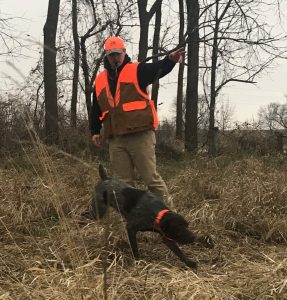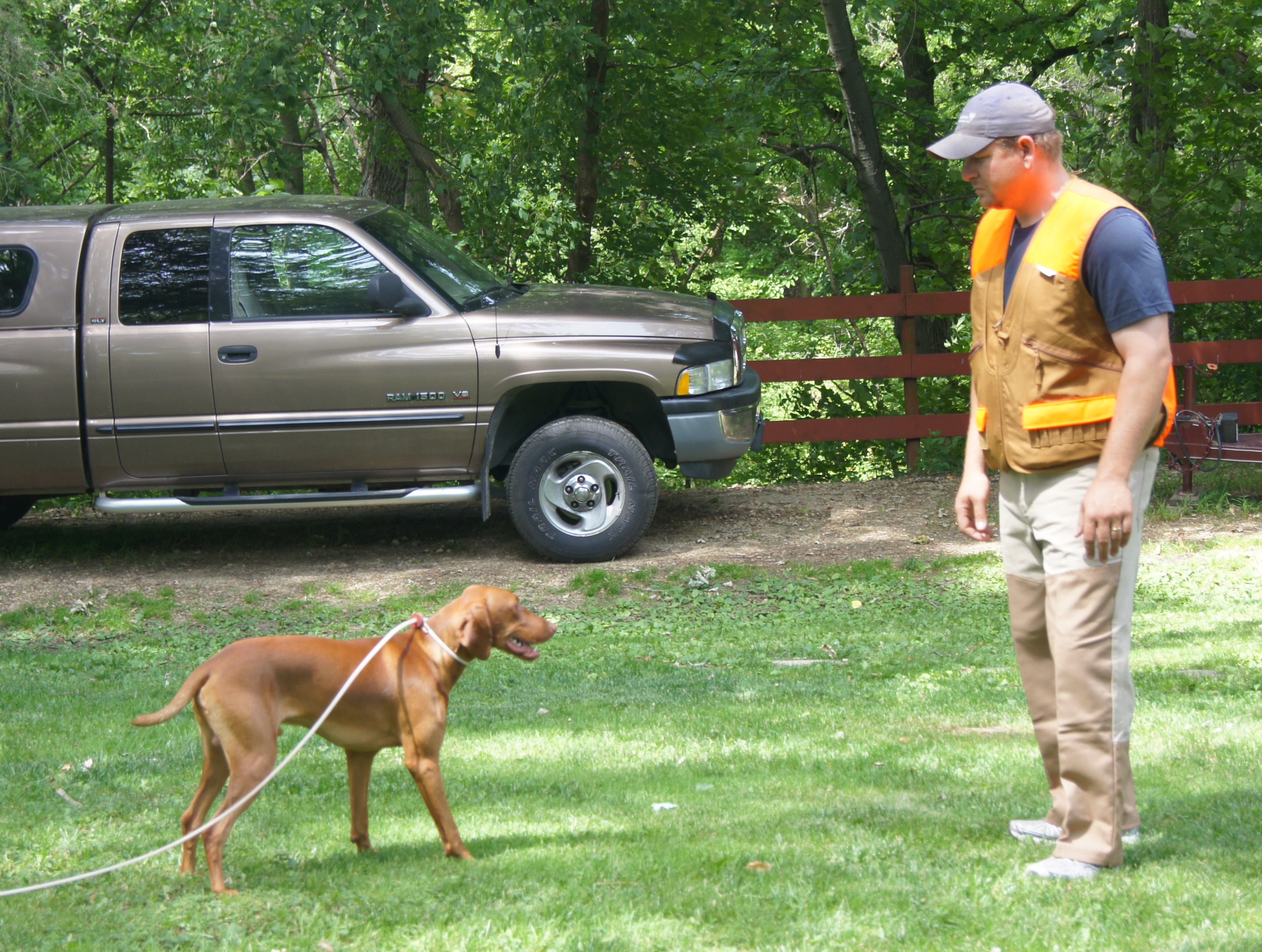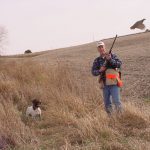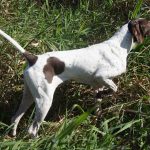Class in a Column: Over handling the Young Dog
Pointing Dog Pointers
by Bob & Jody Iler
Do you “over handle” your pointing dog in the field? Are you afraid that unless you do, you’ll have a control issue with your dog? Do you use your whistle and voice excessively to direct your dog where you want him to go? Is this working?
For our clients who live near enough to commute to our kennel, we offer one-on-one classes, held once a week, for several hours each session. Classes begin with some “theory” discussion in the office followed by hands on work in the yard and field. This month we take a page from one of our recent gun dog classes and focus on an issue common to many novice owners of young pointing dogs – over handling.
Jake had done a great job with his eight-month old German shorthair, Ace. Ace showed a lot of bird sense. He had point and a good nose. He was a good-looking, friendly dog. But what brought Jake to our kennel was a feeling that something wasn’t quite right with Ace and Jake wasn’t sure what to do.
Ace just didn’t seem to show the enthusiasm that should normally accompany a pup with his natural talents. He seemed a little on the timid side at times, and Jake was nervous about Ace and gun work. For handling Ace in the field, Jake used a non-tangle orange checkcord, his whistle, and his voice – a lot of whistle and voice!
In early field sessions, it was apparent that Jake was over handling Ace without meaning to – using his voice and whistle excessively to hack him in. The result was that Ace worked closely and without a lot of excitement or drive. It was evident that Ace needed less control and more independence.
At this point, it’s good to remember that unlike flushing dogs, the pointing dog needs the freedom to get out there and find the birds on his own. Too much control in the field can be counterproductive for a young, inexperienced dog. This assumes that you, and not your dog, know where those birds are! Granted, we know where birds are likely to be, but the dog is the one with the nose, and he knows!
Over handling also assumes that you really don’t have confidence in your ability to control your dog – thus all the hollering and whistling. Dogs soon become “deaf” to excessive voice and whistle. Effective control is in the hands, not the voice.
Desired range is determined by the owner and the type of hunting he or she will be doing. Whether hunting pheasants in Iowa, grouse in Wisconsin, or quail in Texas, the dog’s range will be different in each scenario. From boot polishers to horseback dogs, each dog will need the control appropriate to the cover and game the dog is hunting, determined by you without excessive handling.
We removed the checkcord from Ace and Jake quieted his voice and whistle use. Since Ace knew what hunting was all about, he immediately extended his range and showed more independence without being an “outlaw.” Now he could find more birds by covering more ground, yet continue to handle kindly without a lot of shouting and whistling, since Jake had laid a foundation with Ace by earlier quartering work.
Here, too, we want to note the importance of reading your pup and his temperament. Yard work and basic quartering and control work in the field are part of our development program for pups. We also want our pups to be extremely birdy and show lots of enthusiasm in the field. With some pups that are soft or timid, it’s necessary to give them the freedom to have fun and become bird crazy before the control work is added.
This enthusiasm is also necessary, even crucial, as the groundwork for progressive gun development is laid. We want pup to be focused on the bird and chasing it with excitement as the noise level gradually increases. Too much control and over handling can inhibit, even ruin, this process.
If he doesn’t have a good read on his pup’s temperament, a novice owner can get this sequence mixed up without meaning to. The novice owner understandably wants to spend time with his pup, training and working with him, right from the start. With some pups, excessive obedience and field control work before bird and gun development work can be detrimental to their training program. For more on this, read our article, “Shuffle the Cards” in the March/April 2005 issue of The Pointing Dog Journal.
To give Jake an idea of “silent handling,” we brought our three-year old English setter to the field for a demonstration. She remained on a whoa until tapped for release, and was off like a rocket, covering the perimeter of the entire large field with joy and abandon. As she settled a bit, she cast about for the bird, pointed, and remained steady while the bird was flushed, the shot fired, and she was released. All this was done with a minimum of whistle and no voice. There is nothing quite like seeing a finished dog in action to appreciate the perfect combination of freedom and control that comes from years of training!
Over handling can hinder development in young dogs. Relax, take a deep breath, and give your pup the freedom to get out there and find the birds. Remember the old saying: “You can always pull them in, but it’s difficult to push them out.”
Pointing Dog Pointers features monthly training tips by Bob and Jody Iler, who own Green Valley Kennels in Dubuque, Iowa. Bob and Jody have trained pointing dogs for over 35 years and have written many articles for The Pointing Dog Journal.







